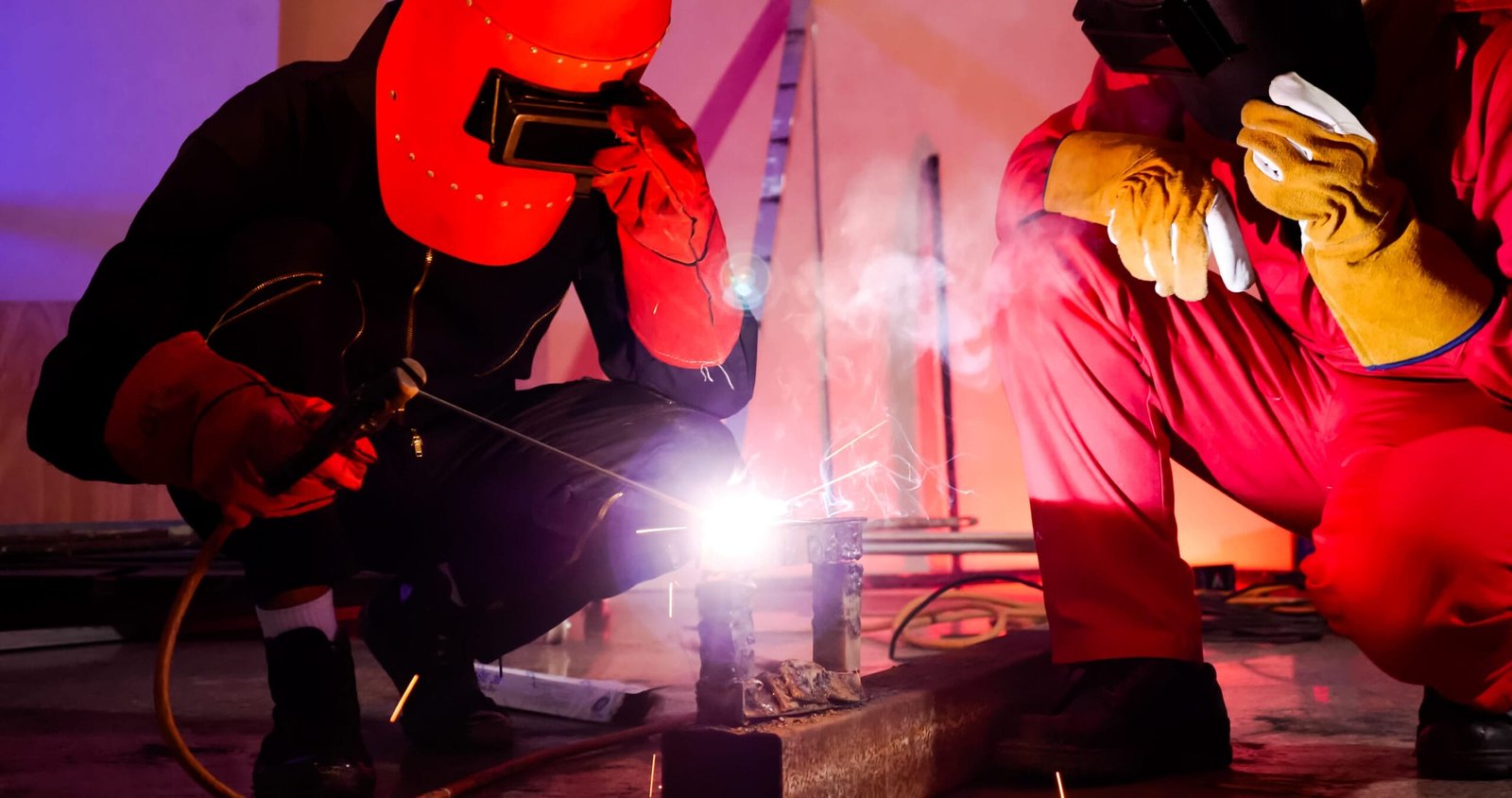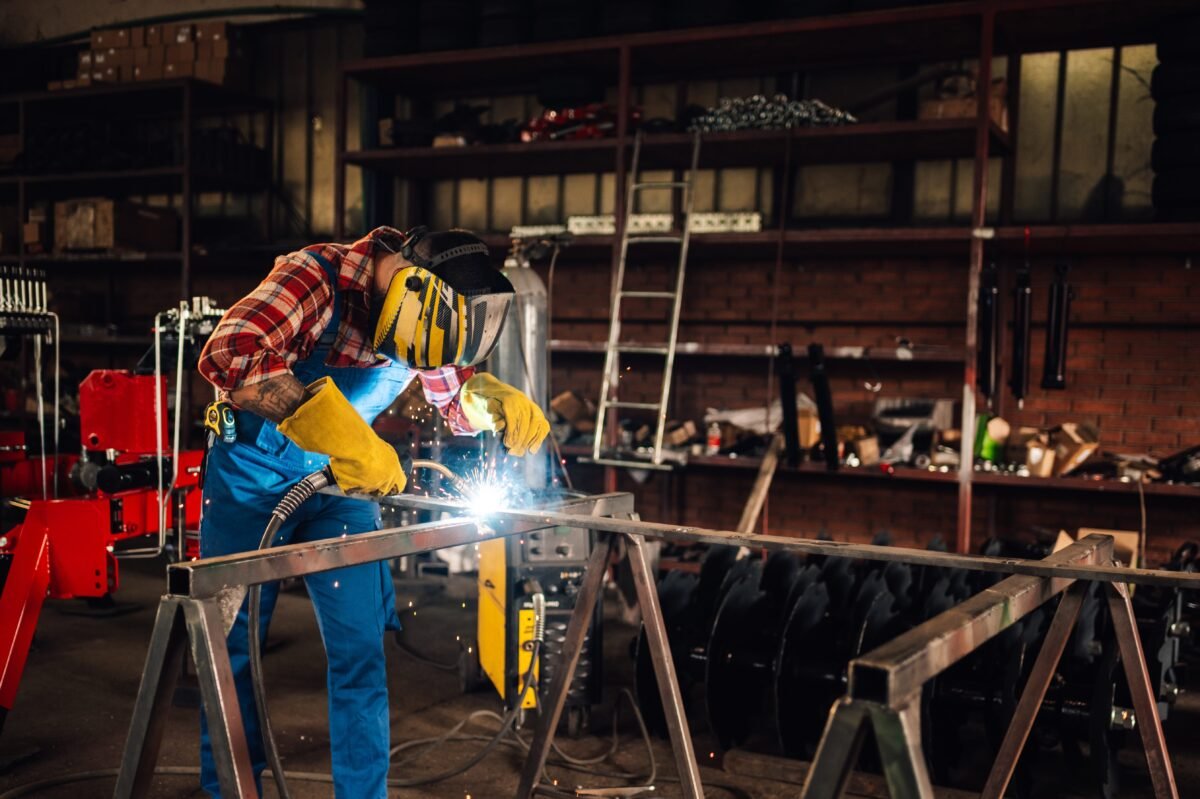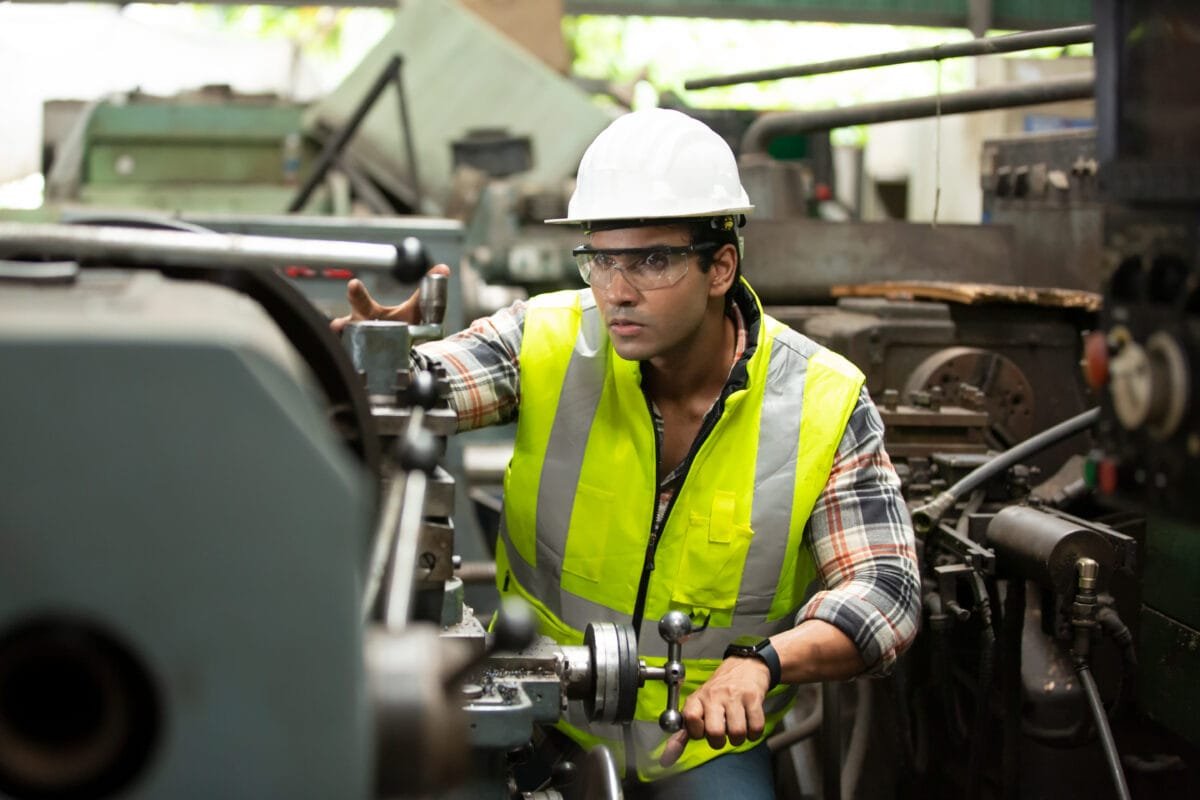A Comprehensive Guide to Securing Welder Jobs in Gulf Countries
Welding is a vital trade across several industries, especially in construction, oil and gas, shipbuilding, and manufacturing. The Gulf countries, known for their large-scale infrastructure projects and booming industries, have a constant demand for skilled welders. Countries like the UAE, Saudi Arabia, Bahrain, Qatar, and Oman present lucrative opportunities for welders with the right skills and certifications.
In this article, we’ll explore how to secure welder jobs in these Gulf countries, focusing on the types of welders in demand, the role of recruitment agencies in Pakistan, and the importance of video resumes for overseas employers.
1. How to Get Welder Jobs in the UAE ?
The UAE, especially cities like Dubai and Abu Dhabi, is known for its impressive infrastructure projects, from skyscrapers to large industrial plants. As a result, the demand for welders, particularly those specializing in MIG (Metal Inert Gas), TIG (Tungsten Inert Gas), and arc welding, remains high. Welder jobs in the UAE are readily available in the construction, oil, gas, and manufacturing sectors.
How to Get a Welder Job in the UAE:
- Acquire Necessary Certifications: To secure a welder job in the UAE, certifications such as 3G, 4G, and 6G welding certifications are essential, as they verify your skill level.
- Register with a Recruitment Agency: Recruitment agencies in Pakistan can help match your skills with employers in the UAE. These agencies handle everything from visa processing to placement.
- Submit a Video Resume: Many UAE employers prefer video resumes to assess a candidate’s welding skills. This gives them a clearer idea of your abilities and experience. Learn more about how video resumes can increase your chances of getting hired here.

2. How to Get Welder Jobs in Saudi Arabia?
Saudi Arabia, with its expanding construction, oil, and gas industries, offers a vast number of job opportunities for skilled welders. Large projects like NEOM and ongoing refinery projects consistently require welders with specialized expertise, particularly in industrial and pipeline welding.
How to Get a Welder Job in Saudi Arabia:
- Obtain Relevant Certifications: Saudi employers often require certified welders. Having certifications such as AWS (American Welding Society) or CSWIP (Certification Scheme for Welding and Inspection Personnel) can significantly increase your chances of securing a position.
- Apply Through a Recruitment Agency: Recruitment agencies in Pakistan that specialize in placements in Saudi Arabia can guide you through the process of finding the right job, applying for the necessary visa, and preparing you for interviews.
- Prepare a Video Resume: A video resume showcasing your welding skills is becoming a common requirement in Saudi Arabia. Employers are increasingly asking for video resumes to evaluate a candidate’s expertise and suitability for the job before making a decision.
3. How to Get Welder Jobs in Bahrain ?
Bahrain’s growing construction and maritime industries have also contributed to a continuous demand for skilled welders. Welders specializing in shipbuilding, repairs, and industrial construction are highly sought after in this small but dynamic Gulf nation.
How to Get a Welder Job in Bahrain:
- Ensure You Have the Required Certifications: Similar to other Gulf countries, certifications like 3G, 4G, and 6G are necessary for welder jobs in Bahrain.
- Register with a Recruitment Agency: Agencies that focus on connecting Pakistani workers with Bahraini employers can streamline your job search and ensure you have the necessary paperwork in place.
- Submit a Working Video Resume: With many employers now requesting video resumes, it’s essential to provide a video that demonstrates your welding skills and experience to stand out among other candidates.
4. How to Get Welder Jobs in Qatar ?
Qatar has been a hub for infrastructure development, especially leading up to and following the FIFA World Cup 2022. The demand for welders in Qatar spans across industries, including construction, oil, gas, and manufacturing.
How to Get a Welder Job in Qatar:
- Obtain Recognized Welding Certifications: Welders with certifications in MIG, TIG, or pipeline welding have the upper hand in Qatar’s job market. Consider obtaining international certifications like AWS or CSWIP to enhance your credibility.
- Work with a Recruitment Agency: Recruitment agencies in Pakistan can help secure welder jobs in Qatar by linking you to employers and assisting with the visa process.
- Create a Detailed Video Resume: Many employers in Qatar now request video resumes to assess candidates’ skills more accurately. Make sure your resume clearly demonstrates your welding expertise and includes footage of your work.
How to Get Welder Jobs in Oman ?
Oman is known for its growing oil, gas, and construction sectors. These industries require highly skilled welders who can work on pipelines, industrial structures, and infrastructure projects. Oman’s continuous growth has made it an attractive destination for welders looking to work in the Gulf.
How to Get a Welder Job in Oman:
- Hold Relevant Certifications: Omani employers expect welders to have certifications such as AWS or 3G, 4G, and 6G certifications that verify your technical abilities.
- Register with a Recruitment Agency: Recruitment agencies in Pakistan specializing in placing workers in Oman can help streamline your job search and ensure you meet the specific requirements of Omani employers.
- Submit a Video Resume: Oman-based employers often prefer video resumes to get a firsthand look at a candidate’s welding skills. This gives them a better idea of your capabilities before inviting you for an interview or making a job offer.
Types of Welders in High Demand in Gulf Countries
Different types of welding techniques are required for various projects in the Gulf. Below are some of the most common types of welders in demand:
1. MIG Welders (Metal Inert Gas)
MIG welding is widely used in construction and manufacturing, especially when large sections of metal need to be joined. This type of welding is ideal for large-scale infrastructure projects, which are prevalent in Gulf countries such as Saudi Arabia and the UAE.
2. TIG Welders (Tungsten Inert Gas)
TIG welding is a more specialized technique, requiring precision and expertise. This type of welding is often used in industries that demand high-quality welds, such as aviation, aerospace, and nuclear projects.
3. 3G, 4G, and 6G Welders
These welders are certified in various welding positions—vertical (3G), overhead (4G), and all positions (6G). Certifications such as these are highly sought after by employers in the Gulf’s oil, gas, and construction sectors.
4. Pipeline Welders
Pipeline welders are particularly needed in the oil and gas industries in Gulf countries. These welders specialize in welding pipelines that carry oil, gas, and other materials across vast distances.
5. Gas Welders
Gas welding is a technique that requires specialized skills. It is commonly used in shipbuilding, industrial construction, and other heavy industries in the Gulf.
Certifications Required for Welding Jobs in the Gulf
To secure welding jobs in Gulf countries, certifications are often mandatory. Below are the most recognized welding certifications:
- AWS (American Welding Society) Certification: This international certification is highly valued by employers in the Gulf.
- CSWIP (Certification Scheme for Welding and Inspection Personnel): This certification is particularly important for welders working in industries requiring high-quality control, such as aerospace and shipbuilding.
- 3G, 4G, and 6G Certifications: These certifications indicate a welder’s proficiency in different welding positions and are essential for jobs in construction and the oil and gas industries.
The Growing Importance of Video Resumes
With the rise of digital recruitment practices, video resumes have become an important tool for welders seeking jobs in the Gulf. Video resumes allow employers to get a clearer picture of a candidate’s skills, work ethic, and experience before making a hiring decision.
For more insights into how video resumes can help you secure welding jobs in Gulf countries, check out our detailed guide on The Importance of Video Resumes for Overseas Jobs.
Conclusion
Securing welder jobs in Gulf countries offers rewarding career opportunities, especially in booming industries like construction, oil, and gas. Countries such as the UAE, Saudi Arabia, Bahrain, Qatar, and Oman are continuously in need of skilled welders, particularly those certified in MIG, TIG, and 3G/6G welding.
To improve your chances of landing these jobs, obtaining the necessary certifications, creating a professional video resume, and working with recruitment agencies in Pakistan are crucial steps. Recruitment agencies not only bridge the gap between job seekers and overseas employers but also handle the visa and placement processes, ensuring a smooth transition.
By investing in the right skills, networking with trusted agencies, and keeping up with modern recruitment trends like video resumes, you can open doors to high-paying welder jobs and build a successful career in the Gulf.
Get in touch with
Premier Recruitment Agency
of Pakistan
Disclaimer :
The information provided in blog articles and how-to guides on the LinkArabia website is for general informational purposes only. While we strive to provide accurate and up-to-date content, we make no representations or warranties of any kind, express or implied, about the completeness, accuracy, reliability, suitability, or availability of the information. Any reliance you place on such information is strictly at your own risk. For more information , please read linkarabia disclaimer policy.




